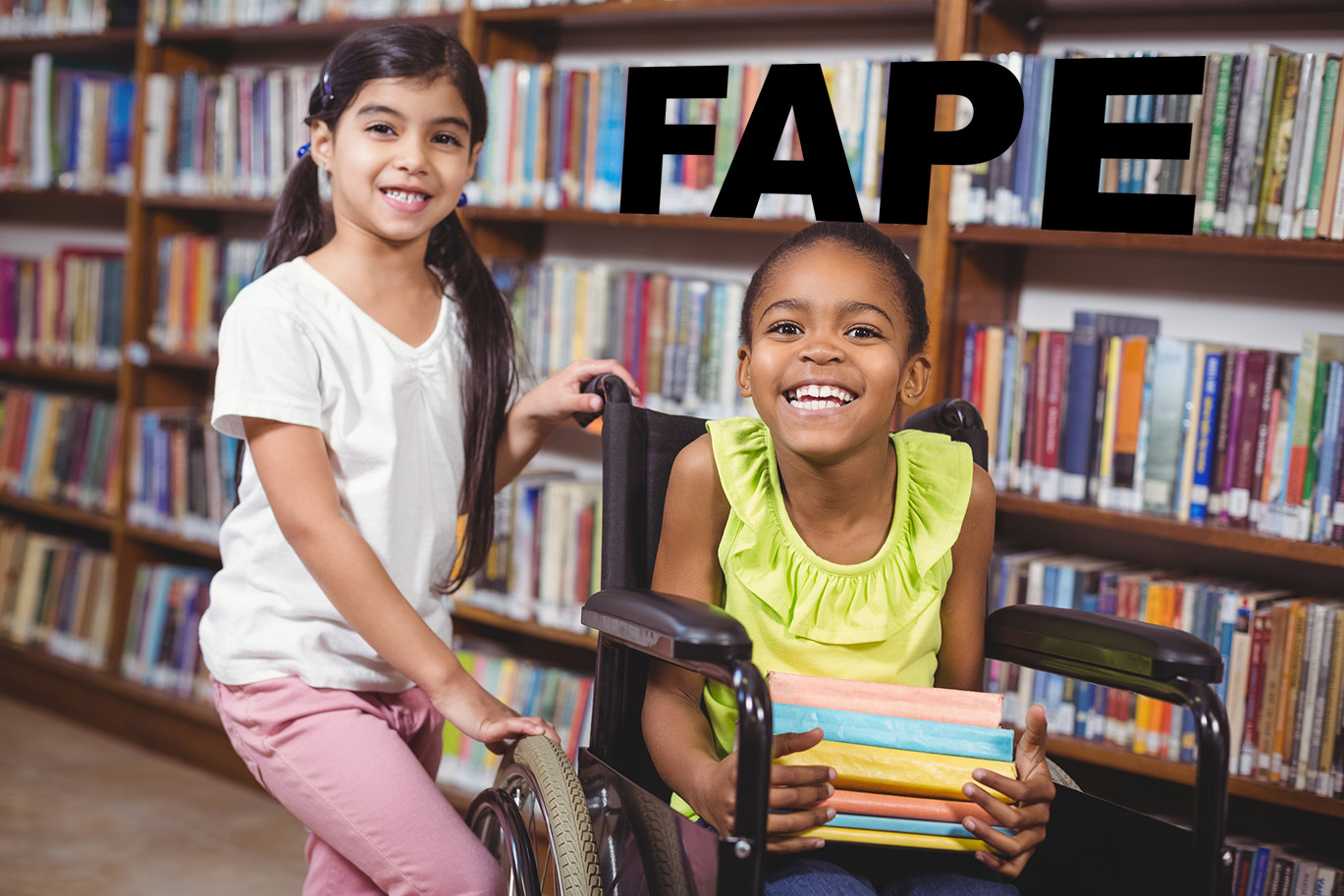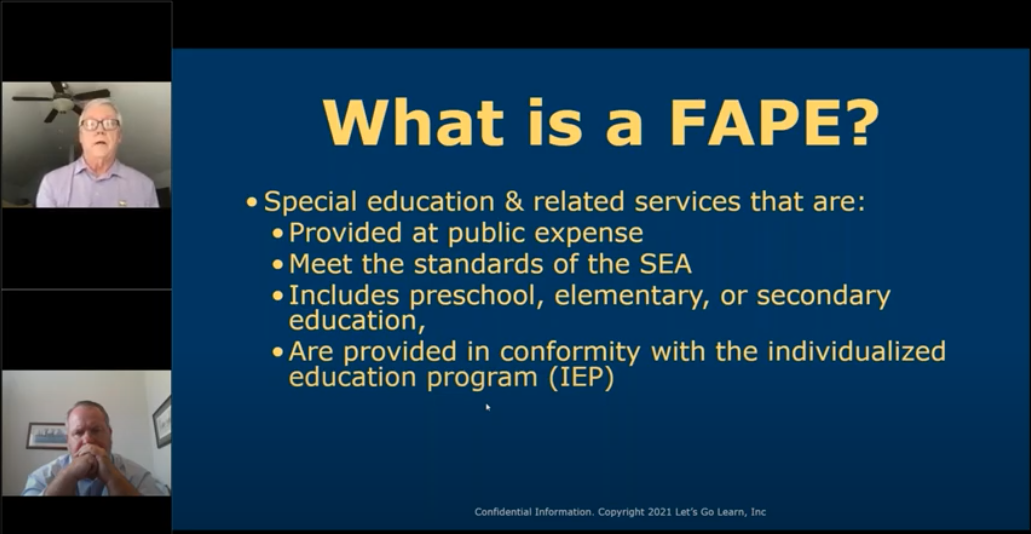In an interview with Dr. Mitchell Yell and Dr. Kurt Hulett, Let’s Go Learn sponsored a free special education workshop to explain the legal issues surrounding FAPE, and how Let’s Go Learn can help.
FAPE means a “free appropriate public education”, and it’s a fundamental right spelled out for eligible children with disabilities who attend public schools. It’s a cornerstone of special education law, and a concept that was renewed in the Individuals with Disabilities Education Act (IDEA).
Explore more topics in special education
The precursor to this act was the Rehabilitation Act of 1973, which originally defined FAPE. To provide FAPE, the IDEA Act says schools must provide students with an “education that emphasizes special education and related services designed to meet their unique needs and prepare them for further education, employment, and independent living.” Schools must not only provide these services, but they must also seek out and identify the students who deserve these services, regardless of the nature or severity of the student’s disability.
At the relatively sudden start of the COVID-19 pandemic, the federal government acted quickly to explain what public schools must provide to special education students, even though in-person classrooms were closing. OSERS (the federal Office of Special Education and Rehabilitative Services) issued several policy letters.
In the interview, Mitchel Yell elaborates,
“One of the major things OSERS said all the way back in March, 2020 at the start of the COVID-19 pandemic, was that, although they understood how difficult this time was for teachers, administrators and students, that nonetheless special education teachers were still responsible to provide a free appropriate public education for all the students with which we worked. Clearly that presented quite a challenge to administrators and teachers.”
To determine what FAPE means for individual students, IDEA and the Rehabilitation Act left the details up to the local teachers, administrators and parents overseeing a student’s progress. In practice, educators determine what constitutes the appropriate FAPE intervention by creating and following a student’s Individualized Educational Plan (IEP). All federal guidelines must be followed carefully. States may require additional requirements above and beyond federal guidelines, but they can’t require less than Section 504 of the Rehabilitation Act.
Special education & related services provided through an IEP:
- are provided at public expense
- meet all state and federal standards
- include preschool, elementary, or secondary education
Even with all these guidelines, the details of an IEP intervention may still be objectionable to educators or parents. Courts have had to clarify what FAPE really means, and knowing the precedent-setting cases is vital. Two of the major court cases are Rowley and EndrewF. These cases helped establish that educators must know the procedures of the law.
For more practical tips and information about meeting the challenges of FAPE, we encourage you to watch the full, informative interview with Dr. Yell and Dr. Hulett.




Leave A Comment